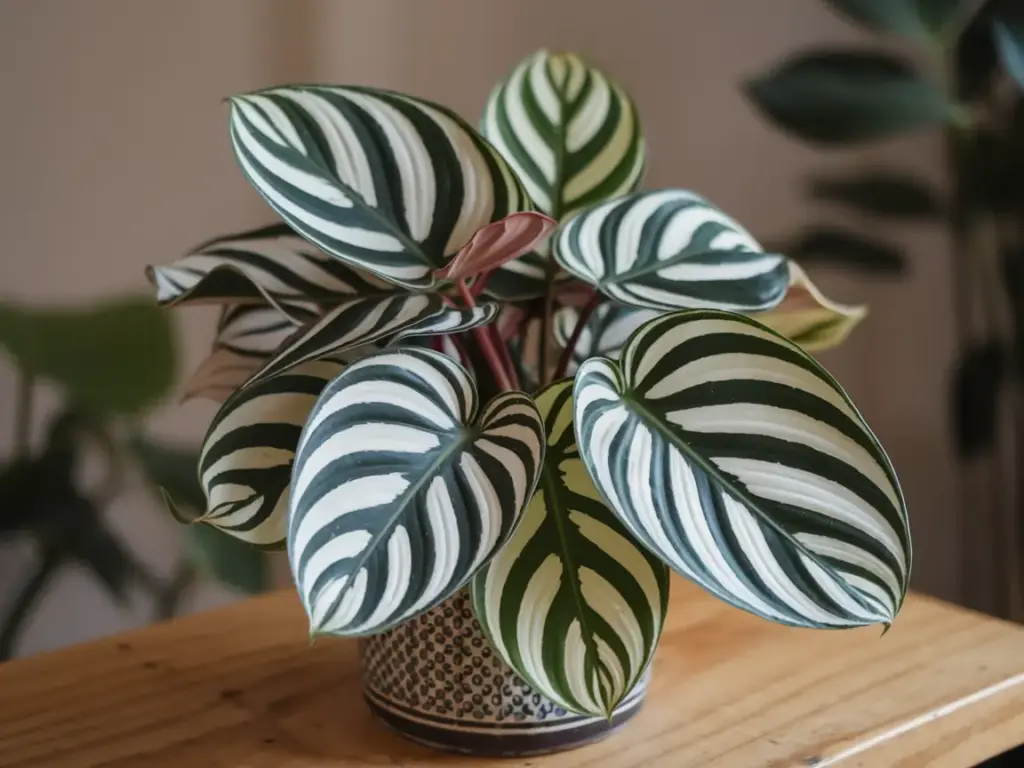#4 – Calathea Orbifolia

I remember the first time I noticed my Calathea Orbifolia leaves moving at sunset – it literally stopped me in my tracks! These stunning prayer plants have become my favorite evening entertainment, and trust me, once you get their care right, they’ll reward you with the most spectacular show of leaf movements you’ve ever seen.
The Daily Dance: Understanding Prayer Plant Movements
The nyctinastic movements (fancy word for sleep movements) of Calathea Orbifolia are truly fascinating. Here’s what I’ve observed over years of growing them:
- Leaves rise upward at night like hands in prayer
- Movement begins about an hour before sunset
- Morning brings a gradual unfurling
- Each leaf follows the daily light pattern
Mastering the Humidity Game
Let me be straight with you – I killed my first Calathea by ignoring its humidity needs. These plants are total humidity divas, but for good reason! In my experience, here’s what works:
- Maintain humidity levels above 60%
- Use a humidifier within 3 feet of the plant
- Group with other moisture-loving plants
- Consider a pebble tray for extra moisture
Those Gorgeous Leaf Patterns
The silvery striped patterns on Orbifolia leaves are what make this plant truly special. I’ve noticed that pattern intensity varies based on:
- Light exposure (too much sun fades patterns)
- Overall plant health
- Age of leaves
- Growing conditions
Troubleshooting Like a Pro
After dealing with pretty much every Calathea issue possible, here’s my tried-and-true problem-solving guide:
Crispy Edges:
- Usually indicates low humidity
- Could be from tap water sensitivity
- Switch to filtered or distilled water
- Increase humidity immediately
Curling Leaves:
- Often means underwatering
- Might indicate too much light
- Check for drafts from windows/vents
Fading Patterns:
- Too much direct sunlight
- Move to bright indirect light
- Morning sun only if any direct light
Creating the Perfect Plant Group
One of the best tips I’ve discovered is that Calathea Orbifolia thrives when grouped with specific plants. Here’s my winning combination:
- Maranta (another prayer plant)
- Ferns for added humidity
- Philodendron Brasil for contrast
- Other Calathea varieties
Want to add some serious drama to your indoor jungle? Coming up next, I’ll share everything about the stunning Alocasia Polly – a plant that looks like it came straight out of a dinosaur movie! Click the next button below to learn how I managed to keep this beauty alive and thriving (after failing three times!), and discover my unexpected tip for preventing those dreaded spider mites that Alocasias are famous for attracting.









GIPHY App Key not set. Please check settings